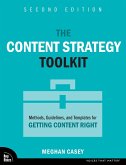In 1985 The WELL, a dial-up discussion board, began with the phrase: You own your own words. Though almost everything else about online discussion has changed in the two decades since, those words still describe its central premise, and this basic idea underlies both the power and the popularity of blogging today. Appropriately enough, it also describes American journalism as it existed a century and a half before The WELL was organized, before the concept of popular involvement in the press was nearly swept away on the rising tide of commercial and professional journalism. In this book, which is the first to provide readers with a cultural/historical account of the blog, as well as the first to analyze the different aspects of this growing phenomenon in terms of its past, Aaron Barlow provides lay readers with a thorough history and analysis of a truly democratic technology that is becoming more important to our lives every day.
The current popularity of political blogs can be traced back to currents in American culture apparent even at the time of the Revolution. At that time there was no distinct commercial and professional press; the newspapers, then, provided a much more direct outlet for the voices of the people. In the nineteenth century, as the press became more commercial, it moved away from its direct involvement with politics, taking on an observer stance-removing itself from the people, as well as from politics. In the twentieth century, the press became increasingly professional, removing itself once more from the general populace. Americans, however, still longed to voice their opinions with the freedom that the press had once provided. Today, blogs are providing the means for doing just that.
The current popularity of political blogs can be traced back to currents in American culture apparent even at the time of the Revolution. At that time there was no distinct commercial and professional press; the newspapers, then, provided a much more direct outlet for the voices of the people. In the nineteenth century, as the press became more commercial, it moved away from its direct involvement with politics, taking on an observer stance-removing itself from the people, as well as from politics. In the twentieth century, the press became increasingly professional, removing itself once more from the general populace. Americans, however, still longed to voice their opinions with the freedom that the press had once provided. Today, blogs are providing the means for doing just that.









